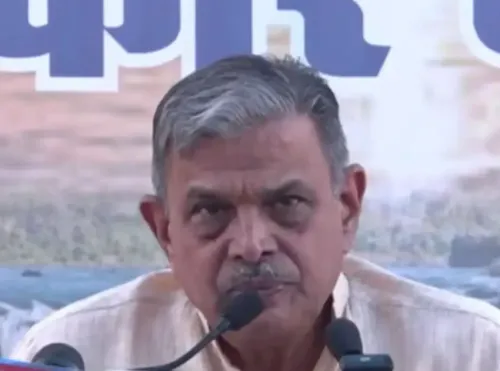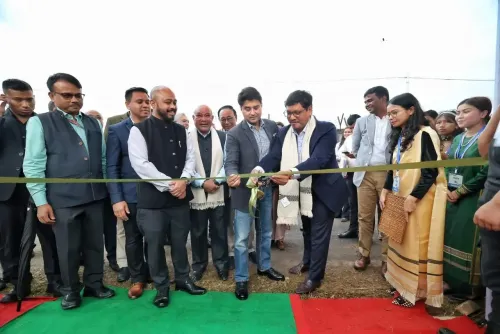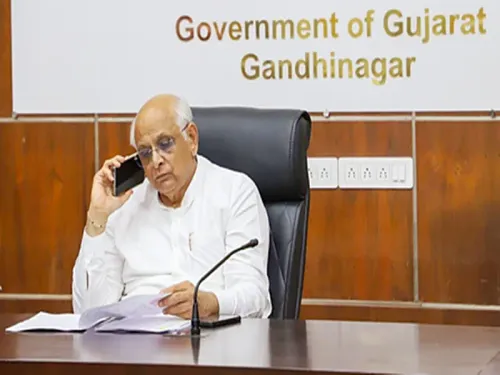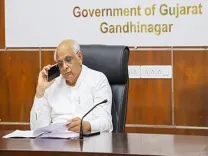<b>Shahabuddin Razvi: Waqf Bill is a Boon for Muslims, Not a Threat to Religious Sites</b>
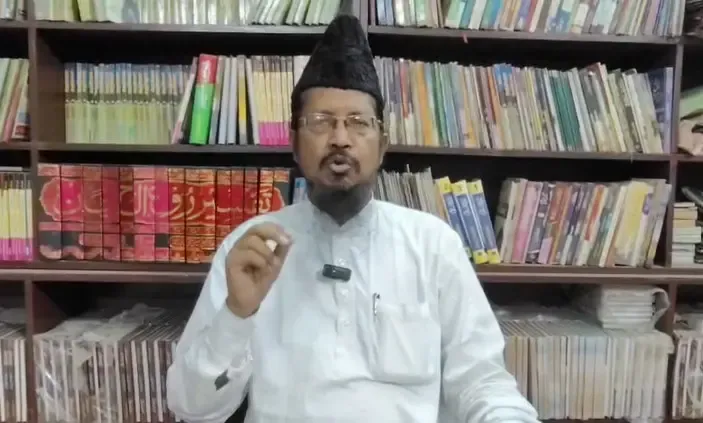
Synopsis
Key Takeaways
- Waqf Amendment Bill supports socio-economic upliftment of Muslims.
- Bill protects interests of the poor and vulnerable.
- Funds from Waqf land to improve education and welfare.
- No threat to religious institutions like mosques and madrasas.
- Community warned against political manipulation.
New Delhi, April 4 (NationPress) Maulana Shahabuddin Razvi, the National President of All India Muslim Jamaat, voiced his endorsement for the Waqf (Amendment) Bill, asserting that it would greatly aid Muslims and enhance their socio-economic status.
He commended the successful passage of the bill in both the Lok Sabha and Rajya Sabha, expressing gratitude to the Modi government.
In his initial reaction to the bill's passage, Maulana Shahabuddin remarked, "The Waqf Amendment Bill does not harm ordinary Muslims; it is beneficial for them. The only individuals at risk are the Waqf land mafias who have unlawfully seized valuable land. Regular Muslims will not be impacted by this."
He further elaborated that the bill aims to safeguard the interests of the impoverished and vulnerable segments of the Muslim community.
The Maulana clarified that the funds generated from Waqf land would be allocated to enhance the socio-economic conditions of underprivileged Muslims, especially those unable to afford quality education for their children.
"The revenue from Waqf land will support poor Muslims, enabling children from low-income families to access better education, as well as assisting orphans and widows in their development," he stated.
Maulana Shahabuddin assured that the funds would be utilized in alignment with the Waqf's intentions, focusing on establishing schools, colleges, madrasas, and orphanages to uplift the educational and social status of marginalized Muslims.
Responding to concerns regarding the impact on religious sites, Maulana Shahabuddin declared, "The Waqf Amendment Bill poses no danger to religious sites. Mosques, madrasas, Eidgahs, cemeteries, and shrines will not be affected. The government will not interfere with these sacred institutions in any manner."
He further urged the Muslim community to be cautious of misleading political narratives, advising them not to be swayed by politicians attempting to manipulate the situation for their own benefit.
"Certain politicians are deceiving Muslims for their personal gains. I urge the Muslim community not to succumb to their provocations," he added.
In the early hours of Friday, the Rajya Sabha sanctioned the Waqf (Amendment) Bill, 2025, with a majority of 128 votes against 95, following a vigorous debate. The Bill had been approved in the Lok Sabha just a day prior, after nearly 12 hours of intense discussion.
Drawing a comparison to the Citizenship Amendment Act (CAA) controversy, Maulana Shahabuddin recounted how political leaders misled the Muslim community, instilling unjustified fear that Muslims would lose their citizenship.
"When the CAA law was brought forth, Muslims were misled into thinking their citizenship would be revoked. However, after its implementation, it became evident that no Muslim in India lost their citizenship, with many actually being granted citizenship," he concluded.

